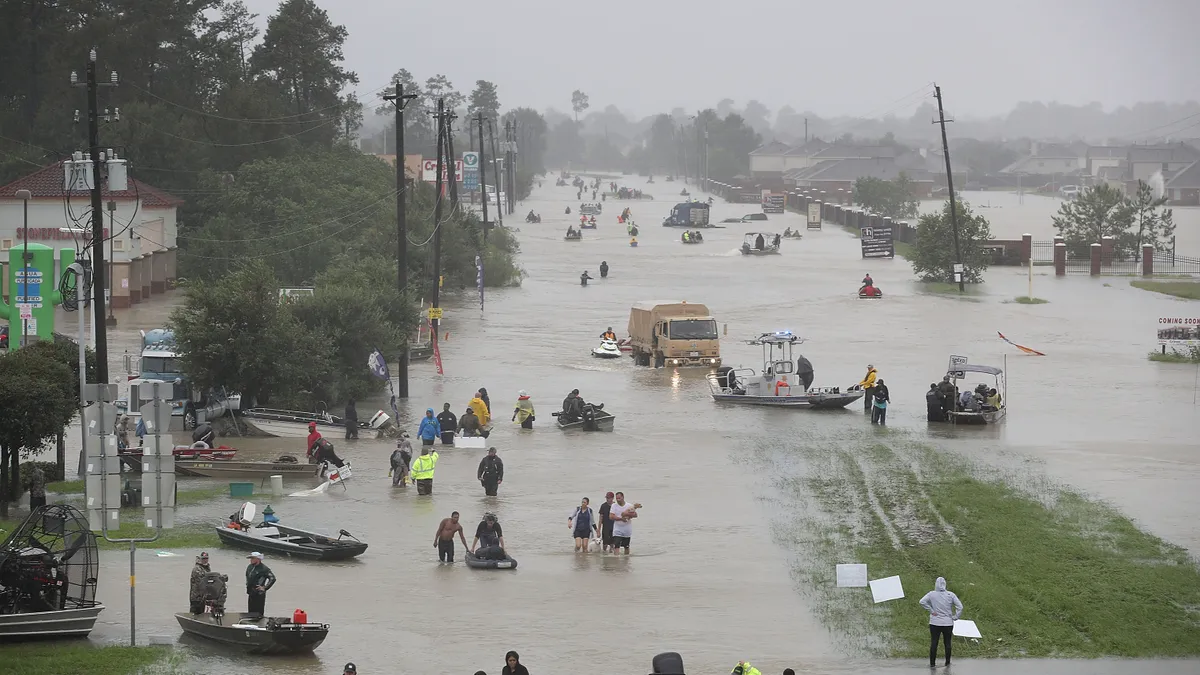Dive Brief:
-
The skilled-labor shortage that has plagued much of the U.S. for the last few years could prevent the prompt rebuilding of Houston after Hurricane Harvey devastated the city last month, according to CBS News.
-
Before the storm hit, area homebuilders were experiencing work backlogs of more than a month. Officials are warning locals of sham contractors coming to the area to take advantage of homeowners eager to rebuild.
-
Construction companies can also pursue direct contracts with the Federal Emergency Management Agency, according to the Austin Business Journal. Texas has reciprocal licensing agreements with several states for some specialty trades, according to The Times-Picayune, but the state does not regulate contractor categories like roofing or general construction. Some municipalities have licensing requirements.
Dive Insight:
That Texas does not license many trades could make it easier for scam artists to prey on desperate residents. These business, often called storm chasers, collect upfront deposits and then move on without doing any work or they overcharge for shoddy jobs. Even with fairly strict licensing laws, the incidents of fraud abounded in Louisiana in the aftermath of Hurricane Katrina, sometimes with the help of local politicians. At least 17 local officials were convicted on corruption charges as a result of post-storm investigations.
The labor shortage story in the aftermath of Harvey will be huge. That's especially so given the projected magnitude of the rebuilding effort and contractors' existing struggles to hire enough qualified labor.
According to a recent survey by the Associated General Contractors of America, 70% of the country's contractors are having trouble finding enough skilled workers to meet demand and roughly the same share (67%) said it will be more difficult to find the necessary help as the year progresses.
Contractors in infrastructure-related trades have also been left wondering how they're supposed to meet their current labor needs and still ramp up for a projected $1 trillion program of highway, port, bridge and other public asset upgrades and new construction. The details of that plan are still being worked out by the Trump administration.
Earlier this year, the president ordered $200 million of Department of Labor job-training funds be used to create 5 million new apprenticeships across multiple industries in the next five years. Construction accounted for roughly half of total DOL apprenticeships last year. In his order, the president gave more control over apprenticeships to the private sector. However, the removal of a requirement to register their programs with the DOL has led some industry observers to express concern about the potential for substandard training.












